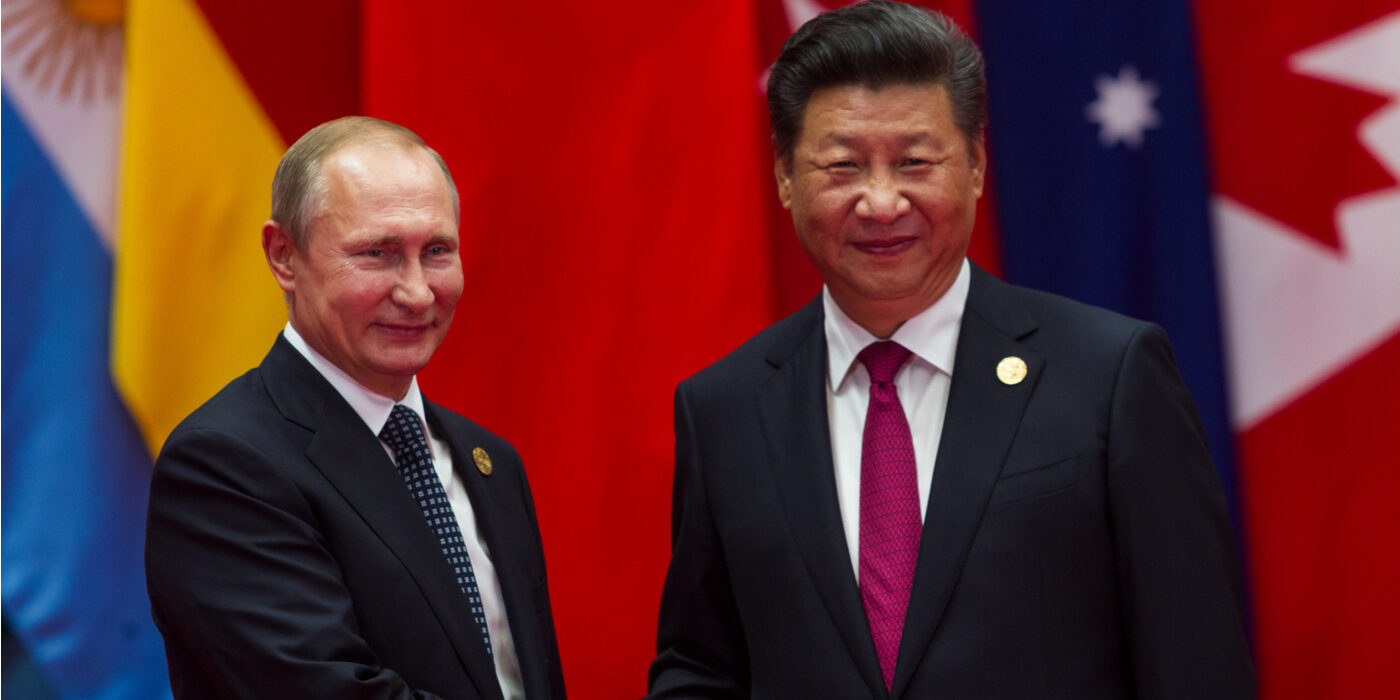
Last month, Russia and China declared that their friendship had “no limits.” But since Russia launched its attack on Ukraine, that friendship has been strained. As the war has gone on, China has sought to distance itself from Russia to avoid the same financial sanctions and economic isolation that has rocked Russia in recent weeks.
Following President Joe Biden’s meeting with Chinese President Xi Jinping March 18, international business experts John Horn and Patrick Moreton at Washington University in St. Louis offered their perspectives on the developing situation, the challenges facing China and what impact their actions could have on the Chinese and global economies.
China is watching the situation closely
All along, China’s stance in the conflict has been more anti-American than pro-Russian, according to Moreton, professor of practice in strategy and management and academic director of the Olin Business School’s MBA Global Immersion program.
“China’s official narrative on Ukraine reflects their dissatisfaction with the position the U.S. has taken on issues that they consider core interests, including Taiwan, Xinjiang and Hong Kong — to name just three — and a general chafing at what they consider the American outsized role in the global political and economic system,” Moreton said.
“I would expect that these are some of the issues that will come up when the U.S. and China sit down to discuss Russia and Ukraine.”
Horn, professor of practice in economics, agrees.
“My sense is that China is looking at this not as a communism versus the rest of the world construct, but rather as China versus the rest of world construct — what’s best for China,” Horn said.
Like many countries, China likely thought Russia’s invasion of Ukraine was going to be a very short-term effort. If this had transpired, and Russia did not face strong pushback from other countries, Horn believes China could have interpreted that as an opportune time to militarily take control of Taiwan.
But much to Russia’s chagrin, the situation has not played out as expected, putting China in a tricky position.
What’s at stake for China?
“From China’s perspective, Russia’s attack on Ukraine, if successful, could have provided an increased opportunity for China to partner with western Europe as a trade alternative to the United States, if the latter had been seen as unable to use its leadership position to prevent the Russian aggression,” Horn said.
Moreton added, “There is also the possibility that China sees considerable opportunity in the current crisis and may very well be asking the U.S. and the European Union for concessions on issues it considers important in exchange for a particular response to Russia’s request for help.”
It’s a delicate balance for China, though. The Chinese government and businesses are acutely aware of how Russia’s actions have decimated its international business and trade and want to avoid the same fate. While China is Russia’s No. 1 trading partner, China relies more heavily on trade with the European Union and the U.S.
Beyond financial and economic implications, there are also serious reputational issues at stake both outside of and inside of China, Moreton said.
“The fact that the Chinese people aren’t being allowed to see what is happening in Ukraine seems to me to be a clear indication that the Chinese leadership sees a legitimacy problem at home if it supports Putin and it becomes widely known just how wrong his invasion and conduct of the war has been,” Moreton said. “The Chinese people are not indifferent to the suffering of others, and they, like most Americans, expect their government to conduct itself in a moral manner.”
From a global perspective, Horn said, “The Chinese government appears to be playing this situation in a way that at the end, China is stronger than where they were a month ago relative to the United States, relative to Western Europe.
“And while a successful Russian invasion could have drawn into question the U.S. role as a global leader, the fact that the majority of countries have followed the U.S.’ lead with economic and trade sanctions, and that there hasn’t been a backlash toward the U.S. more broadly, makes that potential goal harder to achieve,” he added.
What is the best approach to working with China?
Moreton said it’s important for Americans to recognize that each country has many different types of interests, some of which are familiar and others that are quite different based on culture, stage of development, regional and global security, etc.
“In that regard, I think it’s important for Americans to recognize that what we think is right or wrong may not appear so to China and vice-versa,” Moreton said. “This doesn’t mean we acquiesce to these interests. Rather, it simply means that countries trying to work with China have to try to understand their interests and offer a set of carrots and sticks that resonate productively with China’s interests and are consistent with the country’s values.”
But imposing economic sanctions on China is likely not on the table, in part because it would be too politically risky for the Biden administration Moreton said.
“The fractured nature of the American body politic makes harsh sanctions on China like what we have imposed on Russia very hard to pull off politically,” he said. “There are plenty of political and media opportunists who will jump on an opportunity to beat the Biden administration about the head for the inevitable disruptions that this move will have. To pull it off right now would require a level of political leadership beyond what I’m seeing in our political system.
“That’s not to say that more selective sanctions like we currently have aren’t possible, though.”


Leave a Reply